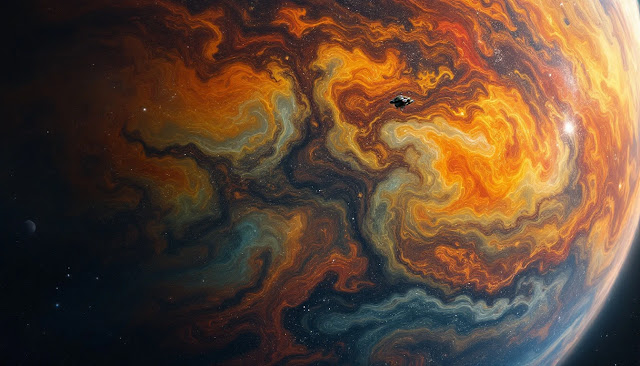Is AI-Generated Content Copyrighted?
Understanding Ownership and Legal Rights
Artificial intelligence (AI) has revolutionized content creation, enabling users to generate text, images, videos, and even music at the click of a button. However, one pressing question that arises is: Who owns AI-generated content? Is it copyrighted, and does the person who generates it have exclusive rights?
The short answer is yes—AI-generated content is typically owned by the person who generated it, provided they meet specific conditions. However, the legal landscape surrounding AI-generated works is still evolving. In this article, we will explore AI copyright laws, ownership rights, and what this means for creators using AI tools.
Understanding Copyright in AI-Generated Content
Copyright laws exist to protect original works of authorship, such as books, music, photographs, and videos. Traditional copyright law requires a human creator, but AI complicates this because it is a non-human entity producing content based on algorithms and pre-existing data.
The fundamental question then becomes: Does AI-generated content qualify for copyright protection?
1. AI-Generated Content Ownership
Most AI content platforms, including text, image, and video generators, assign ownership of the generated content to the user who created it. This means if you use an AI tool to generate an image, video, or piece of music, you own that content and can use it for personal or commercial purposes.
However, ownership policies may vary depending on the platform and its terms of service. Some AI companies retain a license to use generated content for training purposes, while others grant full ownership rights to users.
2. Copyright Protection and Human Creativity
In many jurisdictions, copyright law requires human authorship for protection. Because AI operates autonomously, some legal systems may not recognize AI-generated works as eligible for copyright. In contrast, if a human significantly modifies or guides the AI’s output, they may be considered the legal author and obtain copyright protection.
For example:
If you generate an AI image and manually refine it using Photoshop, your modifications may qualify for copyright protection.
If you use AI-generated text and substantially edit or structure it into an article or book, it may be protected under traditional copyright laws.
Legal Perspectives on AI Copyright
Copyright laws differ from country to country, and AI-generated content is still a gray area in many legal systems. Let’s examine how different regions approach AI and copyright:
1. United States (U.S.)
In the U.S., the Copyright Office has ruled that AI-generated works are not copyrightable unless there is meaningful human involvement. The U.S. Copyright Office has rejected copyright claims for fully AI-generated images and music, stating that only human-created works qualify.
However, if a creator modifies or guides AI output significantly, they may claim copyright protection. The extent of human involvement needed remains a legal debate.
2. European Union (EU)
The EU follows similar guidelines, emphasizing human authorship. However, discussions are ongoing about whether AI-generated content could receive some legal protection. The EU AI Act may address copyright issues in the near future.
3. United Kingdom (UK)
The UK has a unique stance, granting copyright to the person who arranges AI-generated content, even if the AI itself produces it. This means the individual prompting or using AI tools has rights to the output.
4. Other Countries
Other regions, like Japan and China, have started adapting copyright laws to accommodate AI-generated content. China, for instance, has ruled that AI-generated works can have copyright protection if substantial human involvement is present.
Can You Sell AI-Generated Content?
Yes! Many creators are monetizing AI-generated content, including images, books, music, and even full-fledged video productions. AI tools have made content creation faster and more accessible, allowing users to sell digital assets, NFTs, stock images, and more.
However, platforms may have their own rules regarding AI content sales. For example:
Stock image websites (Shutterstock, Adobe Stock) allow AI-generated content but often require disclosure.
Amazon Kindle Direct Publishing (KDP) allows AI-generated books, but some restrictions may apply.
NFT marketplaces (OpenSea, Rarible) accept AI-generated art, but copyright disputes could arise.
If you plan to sell AI-generated work, ensure you understand the platform’s policies and copyright regulations in your region.
Can AI-Generated Content Be Plagiarized?
AI models are trained on vast datasets of pre-existing content, raising concerns about plagiarism and originality. While AI doesn’t directly copy copyrighted works, it may generate similar-looking content. To avoid legal risks:
Modify and refine AI-generated content.
Avoid using AI for direct recreations of copyrighted works.
Check for originality using plagiarism detection tools.
Some AI platforms, such as RepublicLabs.ai, offer proprietary training methods to ensure AI outputs are unique and legally sound.
How to Protect AI-Generated Content
If you want to protect your AI-generated content legally, consider these options:
Modify the AI Output – Add personal touches to make it more original.
Trademark Certain Creations – If using AI to create branding, trademarks may provide legal protection.
Use Contracts – Clearly define ownership and rights if working with clients.
Conclusion
AI-generated content is typically owned by the person who generates it, but copyright protection depends on human involvement. While laws are still evolving, users can monetize, sell, and use AI-generated works freely under most circumstances. However, understanding legal nuances and platform policies is crucial to avoiding copyright disputes.
As AI technology advances, lawmakers will continue adapting copyright laws to address ownership concerns. For now, if you generate AI content, you likely own it—but adding human creativity ensures stronger legal protection.
If you’re using AI for content creation, stay informed on copyright laws, and always check the terms of service of your AI platform of choice. Happy creating!


Comments
Post a Comment